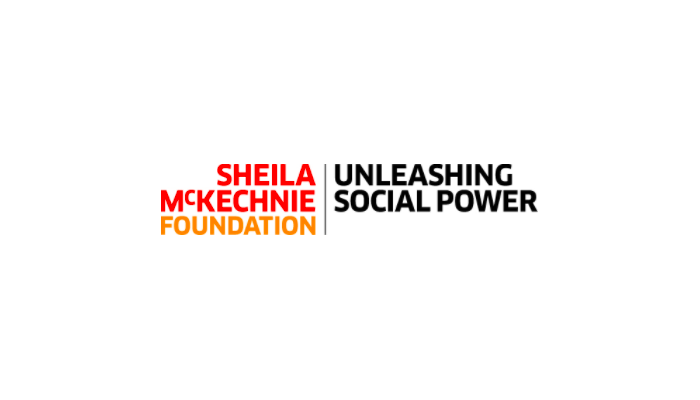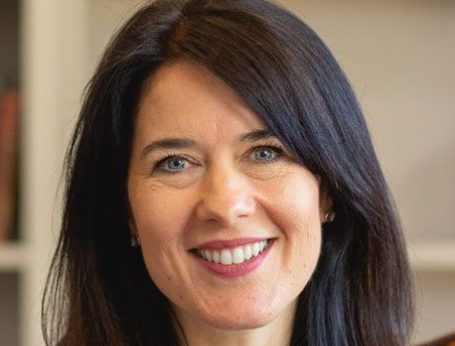A freelancer with lived experience working with the Sheila McKechnie Foundation has accused the charity of failing to share power whilst working on the charity’s official Power Sharing Project.
The Power Sharing Project, which was later renamed to the Power Project, and subsequent report was the culmination of a two-year collaborative inquiry hosted by the foundation. Although it had over 300 contributors, there was a core learning group who helped to shape the project.
Those involved in the project were asked to help promote it by means such as video content, which was later posted on the website.
One person who has worked with the foundation on and off for eight years, on the power project for three, initially contributed video and blog content, but then asked the Foundation to pull it from the website as they felt the principles of the project were “not being adhered to.”
Shaping the project also included input into reports being released but members who contributed voiced concerns early on that ideas were not attributed.
Meetings reflected this, with some members reluctant to put their name lest their positions be compromised. Concerns shown in emails included not including methodological statements and putting acknowledgement at the end rather than in a co-authorship statement.
Members said they felt that presenting it as a more ‘traditional’ report was a missed opportunity and a “poor representation of the process itself.”
In December 2021, emails seen by Charity Times, Sarah Thomas, head of the Power Sharing Project admitted that mistakes were made by the foundation.
Thomas said: “The upshot is that we have made some mistakes. The publication as it stands it not clear enough about whose knowledge it represents…
“With all the internal and external pressures, and all our habits and assumptions we ended up taking more of the work into SMK itself than was ideal.”
The guide was subsequently postponed, with agreement of publication after a rewrite.
However, a member of the Core Learning Group (CLG) told Charity Times, “this never happened”.
The report was published in March of 2022. A draft of the report sent to members in August 2021 and as seen by Charity Times, is not substantially different to the final version still online.
Sue Tibballs, CEO of the foundation, told Charity Times that language regarding the CLG in the introduction was signed off by the group before publication.
In November 2022 following a meeting, Tibballs emailed the group apologising for making members feel uncomfortable and not attributing work and admitted to struggling with the balance of the foundation’s role in the project.
But documents sent following the report said that the foundation believed the work undertaken by the foundation and the CLG was not equal. “Authorship of the guide and accountability of the project rest with SMK,” it says.
Phase two
Phase two of the project included power sharing workshops with CLG members asked to speak, however members claim these were limited to three minutes, and they were told what to say.
“Unintentionally the workshop mirrored all the elements we have identified and wished to challenge on the project,” said the freelancer in an email to Tibballs.
A knowledge and skills framework was eventually proposed, which would audit the ability speak and listen, writing and research on experiences, both learned and lived. It included headings ranging from ‘first-hand knowledge & experience of poverty, inequality or social issue’ to ‘technical knowledge’ and ‘knowledge of SMK core content & frameworks’.
Some felt it was an attempt to create a “glass ceiling”.
Tibballs said that the Foundation didn’t intend on the framework being a way of assessing people ‘like a checklist’ and recognised it didn’t allow for development.
She also said that she wanted those with lived experience to be accountable to themselves, not SMK and suggested a disclaimer saying that advocates (the name given to those with lived experience working with SMK) speak for themselves. The trustee board also acknowledged that there were some things that could have been done differently and promised reviews but “shut down” every request made from members of the CLG.
In an access to information request, a board member said: “Why is it important for us to please [the freelancer] on this? Have we assessed the level of risk in not pleasing them? I believe we should focus on what is right for SMK.”
The foundation has also said it will write a public-facing blog reflecting on lessons learned throughout the project, this is yet to be published, but Tibballs confirmed to Charity Times this is due “in the next couple of months” and will be public-facing reports, not just a blog.
When asked for comment, SMK said: “We are proud of the work we did on the Power Project and the response has been overwhelmingly positive. We are sorry this person feels as they do. They raised concerns with the Board nine months ago and, last autumn, we shared draft proposals setting out how an organisation like ours can work with different types of knowledge and experience and offering clearer ways for those with first-hand experience to be involved. We have yet to receive a response to those ideas. We recognise that equitable collaboration in social change is an ongoing process of sharing, mutual understanding, and learning – we have owned our mistakes on the way and will continue to do so. SMK supports people campaigning for social justice and we remain convinced that learning to work in deeper solidarity – within our own organisations and with other people – is the key to longer lasting and truly transformational change.”
Latest News
-
Lack of trustees and late filing blights homelessness charity, finds regulator
-
Campaigners want to see 1,000 more employers introduce payroll giving
-
Dr Alex Rhys: The real skills behind leading a small charity
-
Further evidence emerges of differences in charity support between rich and poor areas
-
Charity secures site to create Wales’s largest rewilding project
-
Monday movers - 16 February
Charity Times video Q&A: In conversation with Hilda Hayo, CEO of Dementia UK
Charity Times editor, Lauren Weymouth, is joined by Dementia UK CEO, Hilda Hayo to discuss why the charity receives such high workplace satisfaction results, what a positive working culture looks like and the importance of lived experience among staff. The pair talk about challenges facing the charity, the impact felt by the pandemic and how it's striving to overcome obstacles and continue to be a highly impactful organisation for anybody affected by dementia.
Charity Times Awards 2023
Mitigating risk and reducing claims

The cost-of-living crisis is impacting charities in a number of ways, including the risks they take. Endsleigh Insurance’s* senior risk management consultant Scott Crichton joins Charity Times to discuss the ramifications of prioritising certain types of risk over others, the financial implications risk can have if not managed properly, and tips for charities to help manage those risks.
* Coming soon… Howden, the new name for Endsleigh.
* Coming soon… Howden, the new name for Endsleigh.
Better Society

© 2021 Perspective Publishing Privacy & Cookies














Recent Stories